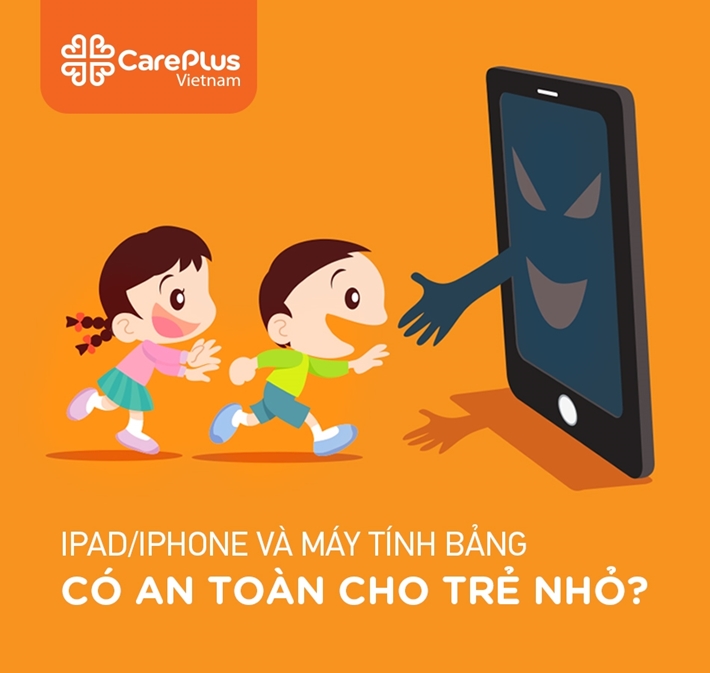Are iPads/iPhone and tablets safe for young children?

1/16/2018 2:36:18 PM
When the iPad first arrived it was such an expensive - and rare - piece of kit that we couldn't imagine many people placing them in the hands of toddlers. But the iPad, and iPhone, have both been tremendously popular and the multi-touch interface is incredibly easy for children to pick up and start using. And the iPad is an amazing educational tool, packed with apps from some of the biggest names in education.
We are seeing more and more children of a very early age using iPads. The amount of time on screens actually increases as children grow to adulthood.
The American Academy of Pediatrics and the Canadian Society of Pediatrics state that:
- Infants aged 0-2 years should not have any exposure to technology at all.
- Children aged 3-5 years should be restricted to one hour per day.
- Children aged 6-18 years should be restricted to 2 hours per day.
Bad effects of Tablets and Smartphones
- Nearsightedness: Some research indicates that constantly focusing at close visual ranges, such as looking at screens on tablets or computers, may stress the eye and eventually lead to nearsightedness.
- Difficult to sleep: Children who sleep near a “small screen” (typically a smartphone) average 20.6 fewer minutes of sleep every night. This may be caused by the high levels of blue light emitted by the screens which depletes melatonin, a hormone linked to circadian rhythm. The extra screen time at night are resetting their bodies’ clocks in a way that makes it difficult for them to sleep, especially if they are just entering or are in the early stages of puberty. This results in lack of sleep and insufficient rest.
- Take time away from other activities: Young children learn best by interacting with people, not screens. Being head down and having no eye contact with people might be harmful to their brain development.
Teaching Kids How to Take Breaks
Modern life has made us dependent upon technology for many of our needs—communication, entertainment, business. Not using devices with screens isn't really much of an option if you want your child to lead a normal life. Instead, make sure your child understands the basics about safe screen use:
- Take Time to Look Away — It's easy for kids to get caught up in games on the iPad or computer, but focusing at one distance for too long is a leading cause of eye strain. Teach your kids the 20-20-20 rule. It's easy to remember. Every 20 minutes, they simply take 20 seconds to look away from the screen and focus on an object 20 feet away.
- Blink Often — When children stare at a screen, particularly those on computers and mobile devices, they tend to blink less. Blinking is the eye's natural mechanism for moisturizing itself and keeping foreign debris out. When your child blinks less they increase the likelihood of eye strain and irritation. You may need to remind them of this regularly since it is something they do without consciously thinking about it. You may even want to put up a fun poster near the computer area to remind them.
- Computer Screen Tips —The computer monitor should be about 20 inches away from face, so make sure they are not leaning in too close to see. Also, teach your child to hold mobile devices like phones and tablets about midway out from the body—not close to the face, but not a full arm's length away, either.
- Make Time for Other Activities — Your child's body is growing and developing. Being hunched over a device or sitting on the couch for the majority of the day is bad not only for the developing eyes, but for the whole body. Your child should take a break from devices regularly throughout the day in order to stretch, play, or even relax without straining their eyes on a screen.
- Get Plenty of Sleep — Sleep is essential for health, and growing children need several hours more sleep per night than an adult (about 10 hours per night for children between ages 6 and 13). Getting enough rest allows your child's eyes to take a much needed break and restore their moisture for the next busy day.